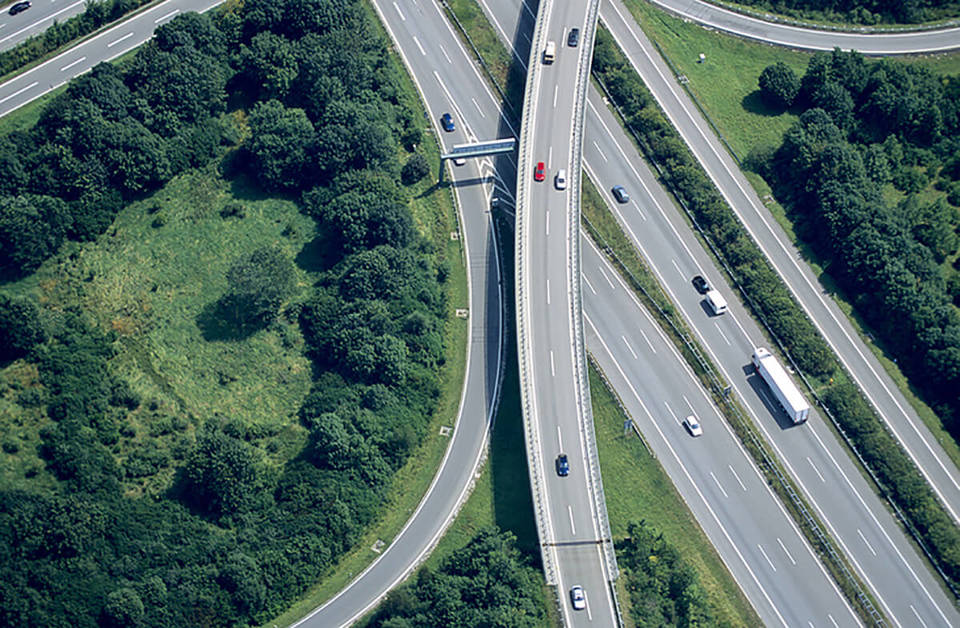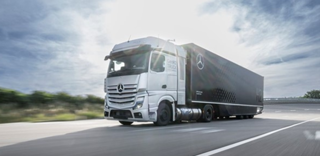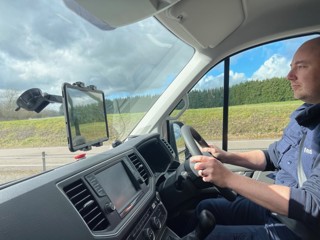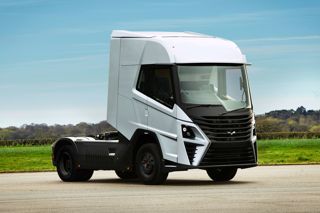A new Government and industry freight forum is being launched to help the sector decarbonise and ensure its long-term sustainability.
Established as part of the Future of Freight plan, the Freight Energy Forum is meeting today (Wednesday, April 5) to bring Government and industry together to support the sector across all modes – including rail, road, air, maritime and warehousing – reach net zero by 2050.
The forum will discuss potential solutions that the sector could take to start reducing emissions now and, for the longer term, will look to create a plan or roadmap to roll out future clean energy infrastructure for the industry.
The forum will bring together expertise and senior representatives from across the energy and freight industries, including individual operating companies, national organisations and sector associations, such as the Road Haulage Association, Logistics UK and National Grid.
The forum will be chaired by the Department for Transport (DfT) officials and will also include senior representatives from across Government, including the Department for Levelling Up, Housing and Communities and the Department for Energy Security and Net Zero.
Topics will include: assessing the supply and demand of the energy the freight sector will need; examining the types of energy infrastructure that will be required to provide refuelling or recharging; and identifying where energy and infrastructure will be needed across the regions and locations, such as motorway service areas, warehouses, rail freight terminals, airports, ports and beyond.
The forum will be technology-neutral, meaning that it will look at a range of potential solutions for the freight sector and not prioritise one type of technology.
Transport minister Richard Holden said: “We recognise that the transition to clean fuels is one of the biggest challenges facing the freight sector and we are committed to delivering a strong future for the sector that will help create good long-term jobs.
“Clean energy supplies and infrastructure is critical to the drive for a cleaner freight sector and the Freight Energy Forum will address those longer-term challenges across the whole industry.”
The Government’s Future of Freight plan was published in June 2022, and sets out how it aims to deliver a cost-efficient, reliable, resilient and environmentally sustainable freight sector.
One of the five priority areas it identified to achieve this goal was to establish this forum to help enable the transition to net zero.
Working as a partnership between industry and Government, the forum will focus on the energy infrastructure requirements needed for the freight sector to transition to cleaner ways of working.
Meeting quarterly, the forum will look to produce several items from its meetings including, a roadmap plan outlining the roll out of clean energy infrastructure for the freight sector, and a review into the regulatory barriers to implementing zero carbon energy infrastructure, including where the planning system makes the installation of this infrastructure difficult.
Furthermore, it will examine actions to address regional and local differences in the coverage of zero carbon energy infrastructure and understanding where the zero-carbon energy infrastructure will be needed, making sure there’s good regional coverage and that the planning system allows for the infrastructure to be built.
It will also be assessing energy supply and demand across all types of freight transport and identifying solutions that can help the entire freight sector to start reducing emissions immediately and increase the speed of transition to net zero.
Senior policy manager at Logistics UK, Denise Beedell, said: “Logistics UK is delighted to be part of the Freight Energy Forum and represent the needs of our members in identifying and clarifying the energy infrastructure and solutions, which will be needed if the industry is to reach net zero.”
Road Haulage Association (RHA) lead on the environment and vehicles, Chris Ashley, added: “The RHA strongly welcomes the Freight Energy Forum.
“The manufacture of electric and hydrogen lorries is only one part of the jigsaw that gets these vehicles on our roads quickly. The other part is the infrastructure needed to power them.
“Our members are keen to start operating these vehicles as soon as possible yet face considerable cost headwinds.
“Public investment in the UK’s energy capability is, therefore, essential to ensure a viable and reliable energy supply exists.
“We look forward to scoping out how this is achieved so that all parts of the UK economy can be serviced by our members.”
























Login to comment
Comments
No comments have been made yet.